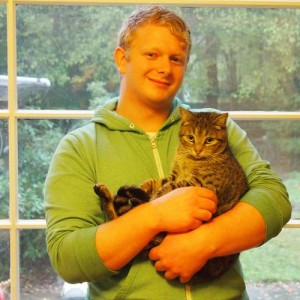 Grand juries are used to threaten political activists in two ways: 1) by threatening prison time for those who refuse to talk about their political beliefs and political associations and 2) by using these threats, combined with secretive proceedings, to intimidate and disrupt the broader social movement.
Grand juries are used to threaten political activists in two ways: 1) by threatening prison time for those who refuse to talk about their political beliefs and political associations and 2) by using these threats, combined with secretive proceedings, to intimidate and disrupt the broader social movement.
The real danger of grand juries targeting activists is that these two distinct types of threats feed off of each other. Prosecutors tell activists who have been subpoenaed that they can “make this all go away” if they just answer some questions about their friends, and their politics. When facing the real threat of jail time, it can be tempting for some people to sacrifice their political ideals and the needs of the broader movement in the name of self-preservation. At the same time, activist communities can get wrapped up in a martyrdom mentality, repeating hardline “no compromise” slogans without recognizing that there can be room to refuse cooperation while also attempting to minimize the risk of jail time.
The recent subpoena of Maddy Pfeiffer to a Seattle grand jury targeting anarchists provides a great example of how to navigate a situation like this. Pfeiffer has refused to cooperate, but decided to enter the grand jury room on November 7th, 2012. When released, supporters provided a detailed transcript of the questions Pfeiffer was asked, and how they were answered. Here’s an excerpt:
P: Do you know what a black bloc is?
M: I am exercising my state and federal constitutional rights including the 1st, 4th and 5th amendments.
P: Have you ever been in a black bloc?
M: I am exercising my state and federal constitutional rights including the 1st, 4th and 5th amendments.P: Have you ever possessed a road flare?
M: I am exercising my state and federal constitutional rights including the 1st, 4th and 5th amendments.P: Do you know a man named ____________ (name redacted)?
M: I am exercising my state and federal constitutional rights including the 1st, 4th and 5th amendments.P: Do you intend to answer “ I am exercising my state and federal constitutional rights including the 1st, 4th and 5th amendments.†to all questions?
M: I am exercising my state and federal constitutional rights including the 1st, 4th and 5th amendments.
I’m not advocating that this is how everyone should respond to a grand jury. I know there are some folks who have had extensive experience with grand juries over the last few decades, and adamantly oppose even entering the grand jury room. However, I wanted to highlight this because it is in such stark contrast to the behavior of Leah Plante, who also pledged to resist the grand jury, then refused to answer any questions about the terms of her unexpected release from jail, and instead left town. Pfeiffer’s response shows accountability and transparency; Plante’s fosters distrust.
| “…they all rely on a lot of accountability and immediate transparency.” -Scott DeMuth, former grand jury resister |
In California, a similar situation has developed regarding a grand jury targeting animal rights activists. Some people have rushed to say that Ariana Tanabe is an informant [edit: that post was removed, here is another] because she agreed to speak at a grand jury proceeding. Attorney Ben Rosenfeld responded that such characterization is misleading and divisive: “While testifying does not constitute resistance, it does not automatically constitute cooperation.”
“While there are non-compromising ways to go before a grand jury, they all rely on a lot of accountability and immediate transparency, neither of which Leah provided immediately upon her release, nor has she provided two weeks later,” said former grand jury resister Scott Demuth. “While this is not necessarily evidence that she cooperated, this is extremely sketchy and irresponsible behavior. Also, by going before a grand jury after previously refusing to testify (and getting a lot of publicity for this) and getting contempt, not only does this show that silence in solidarity can be broken, but it can be used in a legal sense to show that the current incarceration of others for contempt is not punitive since it has already coerced testimony. This has been used as a justification to continue to hold grand jury resisters. Regardless of what Leah may or may not have said to the grand jury, testifying before one after being incarcerated for contempt of court could very well translate as a longer incarceration the Matt and Kteeo (and for others yet to be subpoenaed).”
This has been a difficult issue for activists and their communities to navigate, and unfortunately the threat isn’t going away. Pfeiffer has a contempt hearing schedule for December 14th, at which point continued non-cooperation risks jail time. And at Pfeiffer’s court date, a subpoena was delivered for another person to appear before the grand jury. It appears that the subpoena was delivered to the wrong person, though.
In many ways the most important way to prepare for new grand jury subpoaenas is to study how others have responded over the years.
“In the animal and environmental movement, I was the second after Henry Hutto to be imprisoned for not testifying [in 1993],” said Jonathan Paul, former grand jury resister and Animal Liberation Front prisoner, in a recent interview. “Part of the resistance to the grand jury process is public outreach as this unconstitutional and fascist process spans to all walks of life, not just activists like me. Those who worked on freeing Henry after 45 days of not talking worked on my case so we knew the process better.
“I think my resistance showed that anyone could resist the grand jury. I am no superman as I am just another person no different than anyone else in many ways. Really it is all about commitment in your beliefs… I saw the grand jury as a strong arm of the government and corporations whose continual behavior will destroy life as we know it on this planet. So for me to compromise my beliefs so I could be free while others suffer in ways I have never or never want to experience is narcissism at the highest level. I would never be able to live with myself.”

